Ex-Corrie star Gray O’Brien is good at being bad.
So good, in fact, that he was the first actor to appear as two soap opera baddies simultaneously – womanisers Billy Davis in River City and Tony Gordon in Coronation Street – and went on to win Villain of the Year for his portrayal of evil Tony at the 2009 British Soap Awards.
And his performance inspired such hatred that he was, he admits, “unemployable for about four years” after he left the iconic soap.
“There was a time I was in Dublin one day, a year after [I left], and I was walking down the street,” the Glasgow-born actor recalls. “Literally every single person stopped me and shouted: ‘Tony!’ It was unbelievable.”
Now, more than a decade later, O’Brien’s image has reformed, from factory-boss baddie to “mainly middle aged husbands”.
But this week, he’ll take on the scholarly character of Frank from Willy Russell’s 1980 play Educating Rita at Perth Theatre, directed by River City writer Martin McCormick (co-director of Oh When The Saints).
The play, a two-hander which takes place entirely in Frank’s Open University office, charts the cynical tutor’s relationship with working-class hairdresser Rita (AKA Susan) as she attempts to “better herself” by learning about literature.
And the role is one that O’Brien, 54, has been waiting to grow into since his days at the Royal Scottish Academy of Music and Drama.
“It’s one of those roles, you know?” he says of the alcoholic lecturer, played by Michael Caine in the 1983 film adaptation opposite Julie Walters.
“When I went to drama school in ’87, the play was a few years old at that time, and we knew about it then because the famous speech Frank has was in a book of audition speeches for young actors.
“And I remember being 20, trying to play this 50-year-old character and going ‘I wonder if I’ll play that’.”
And though it’s been more than four decades since the play first charmed audiences, O’Brien thinks the play holds up sturdily for modern audiences.
Part of this, he reckons, is Russell’s balancing of “a great sense of humour and quite a heavy moral”.
But ultimately, he points out, “the big settler in this play is class”; an issue which still pervades public consciousness today.
Acceptable in the ’80s
“He’s very, very good, Willy Russell, at telling us who these people are,” the actor says.
“And isn’t it interesting that he’s from one side of the fence and she’s from the other, and they’re both looking for different things?
“She’s trying to stop him from telling her what to do, saying ‘you can’t control me’ and he’s saying ‘I don’t want to control you and I don’t want you to change’.
“It’s a really lovely moral battle that’s going on. I’m very excited about getting started.”
Back when the play was released, Rita’s gender, as well as her working-class background, would have been huge barriers to her education.
In 1980, just 40% of UK undergraduates were women; nowadays, girls are actually more likely than boys to go on to higher education after school.
And since the Education Act came into force in 1988, more and more people from working-class backgrounds have gone to university.
However, a 2022 study by University of Manchester researcher Kaidong Yu found that ‘subjective rationality’ – assessing whether or not going to university was an achievable goal – is key to the choices people make.
But working-class kids are often still taught that their trajectory is the workplace from age 16, while middle and upper class kids are encouraged to pursue education, creating an inequality of expectations, on top of imbalanced financial resources.
Yu suggested that working-class people still need expansion of opportunities when it comes to education, and more importantly, ‘they need opportunities that feel possible, expected’.
That key idea, of feeling like something is possible – daring to dream, one might call it – is at the centre of Educating Rita.
“I think now, 40 years on, we’re in a position where people will say: ‘I’m working class and I’m very happy to be!’ They’re proud of it, that’s OK now for people to say that,” observes O’Brien.
“Whereas then, [Rita] was quite brave for voicing that opinion in 1983.”
And it’s feeling that he can relate to – growing up in 1970s Ayrshire, he was one of the working-class pupils scoffed at by teachers for having ideas deemed above his station.
Acting? That’s for the toffs!
“I remember at 15, sitting down with the guidance teacher and they said: ‘What do you want to be?'” he recalls.
“I said: ‘Well, I want to be an actor’.
“And they laughed and said: ‘No son, you’ll get a job at the carpet factory – that’s for the toffs!’
“I wasn’t even trying to be an academic, I just wanted to be an actor.
“But in Ayrshire, I was told that was beyond me. And that’s absolutely what happens to Rita, and it’s still happening today.
“And that’s why I think it’s relevant and still works – the only dating of it is the flares!”
But no matter how timeless, a good play can only really sing with good actors; luckily for O’Brien, the Rita to his Frank is rising Scottish star Rachael-Rose McLaren (Enough of Him, Spring Awakening) as Rita.
When we speak, it’s four days before rehearsals begin, and though O’Brien and McLaren have yet to even meet, he’s keen to work with “such an exciting new talent” and get their performance audience-ready in just three short weeks.
“This is what happens, we turns up on the first day and we go, ‘hello!’ and then we’re thrown straight into the deep end,” he laughs.
It sounds full on, but it’s clear he relishes the challenge.
Having spent last year touring the country with Dallas legend Patrick Duffy in Broadway classic Catch Me If You Can, he’s used to treading the boards.
But the former Doctor Who villain admits that he’s not done a lot of repertory theatre; and never at Perth before.
“Normally, I do a lot of commercial theatre, so we do big No1 tours for six months at a time,” he explains.
“So I’m used to doing that for long runs, but this is unusual for me because it’s just three weeks. I’ll just be getting good at it – hopefully – and it’ll be finished!”
Ciaran Hinds career envy
And although his stint on Coronation Street rocketed him to fame simply by having him “in people’s living rooms five times a week”, O’Brien doesn’t appear to be seeking stardom.
In fact, when asked whose career he most envies or admires, his answer is focused more on having consistent work than being known for it.
“Listen, we just like to work,” he laughs. “Acting is one of the few professions where we don’t want to give up or retire, we just want to keep going, because we enjoy it.
“But the one I always aspire to is an Irish actor called Ciaran Hinds,” he reveals.
“He’s a bit of a movie star now, he pops up in big American things,” – The Wonder, Belfast, and Harry Potter and the Deathly Hallows Pt 2 to name a few big hitters – “but the first time I saw him was 1990, so 33 years ago.
“Ian McKellan was doing the National production of Richard III, a big pompous production set in the First World War, and he did all the regalia and the stuff with one hand,” he says wryly.
“At the same time, Ciaran was doing the Citizen’s version. And it was just done in a black box, and it was so powerful. And I thought ‘wow’. He’s just always kept it going.”
With an impressive back catalogue of graft himself, including being a series regular on medical dramas Peak Practice (ITV) and Casualty (BBC) as well as several small TV parts, extensive theatre work and even two feature films (The Wasting by Carolyn Saunders and The Daniel Connection by Stewart Menelaws), O’Brien is on track to make like Hinds and strike the sweet spot between notability and notoriety – excepting his ‘villain era’ of course.
“I think the best career is getting to work and getting to play the parts you want,” he says.
“There’s certain ones that have just gone too stratospheric and you can’t pull them back. But Ciaran Hinds – the career I wanted was always that kind of career.
“But the thing is,” he quips, “Ciaran Hinds wasn’t Villain of the Year in a soap opera, was he?”
Cancer shock didn’t stop O’Brien
O’Brien’s contented outlook is endearing, but it’s also telling of the ongoing feeling of instability (and luck) that comes with making a career in the dramatic arts post-Covid.
Having faced down the barrel of a stage 4 tonsil cancer diagnosis in 2019 (and since made a full recovery) he knows better than most how quickly life can change.
“It was tough,” he admits, recalling the period of time after his treatment.
“Literally, I had just been told that I was going to be OK, and the following week my GP called me and said ‘Have you heard about this lockdown thing? You’re going to have to shield for another six months.’
“So that was a bit of a blow.”
It’s no surprise that the actor is relieved to be back on stage after such a tumultuous time, but thanks to his health scare, O’Brien has taken to treading more than the boards.
“I started to get fit and take care of myself [after the cancer diagnosis],” he says.
“My big interest is walking now, and trying to pass that on to people who are going through those diagnoses today – that there can be light at the end of the tunnel.”
Fortunately, Perthshire has a lot to offer the keen hillwalker, and he’s excited to spend some time in the great outdoors when he’s not in the business of Educating Rita.
“I love going up to Blair Atholl, there’s a couple of Munros up there,” he says excitedly.
“I might try to get up one morning and see if I can get it in before an evening show. I won’t do it on a matinee day though – that would be crazy!”
Spoken like a true bad guy gone good.
Educating Rita will play at Perth Theatre from March 16 to April 1. Tickets can be purchased from the venue’s website.
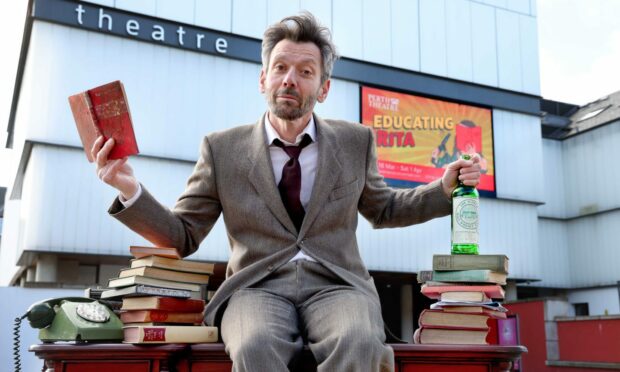
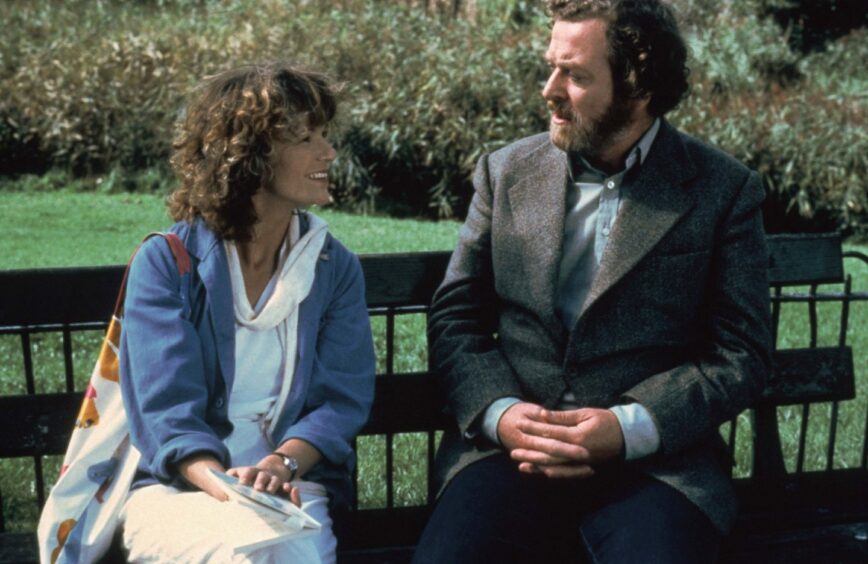
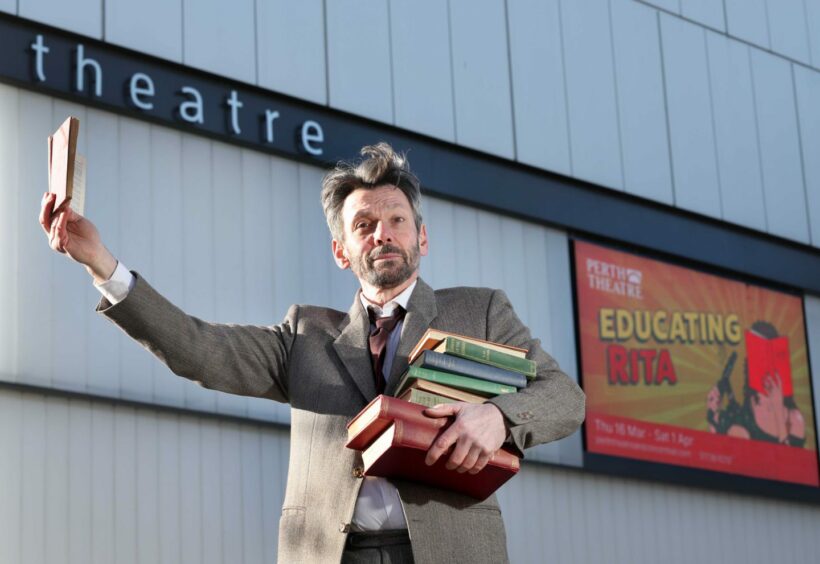
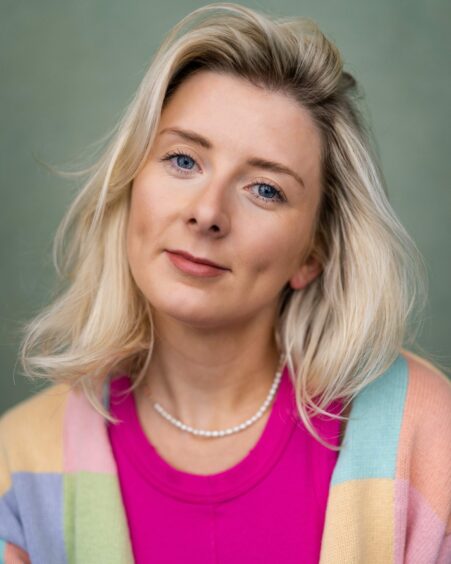
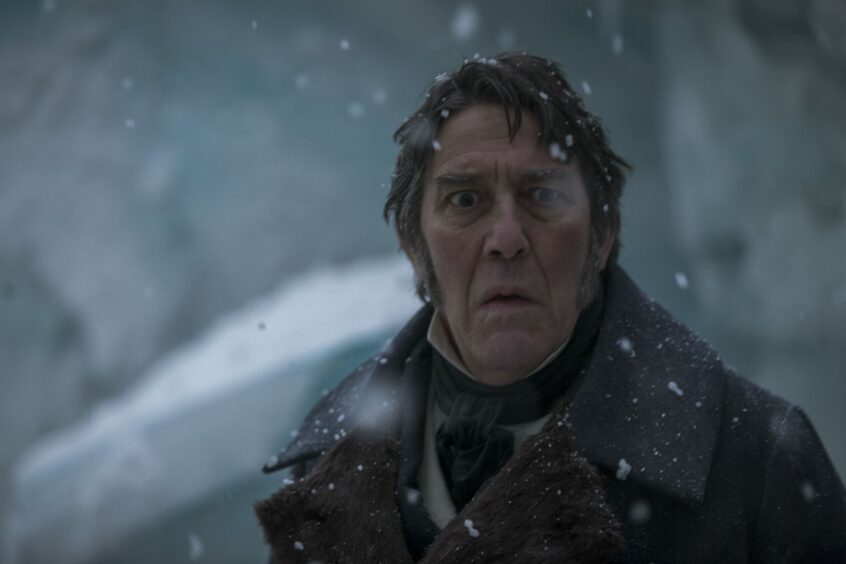
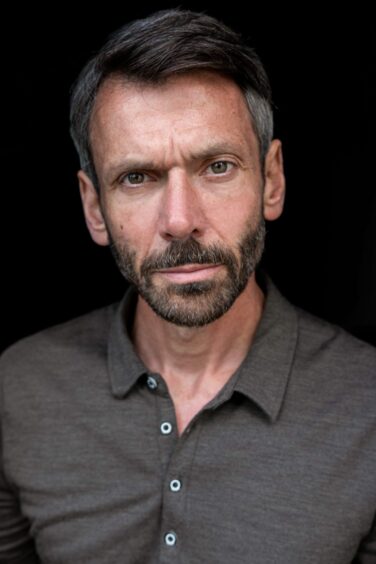
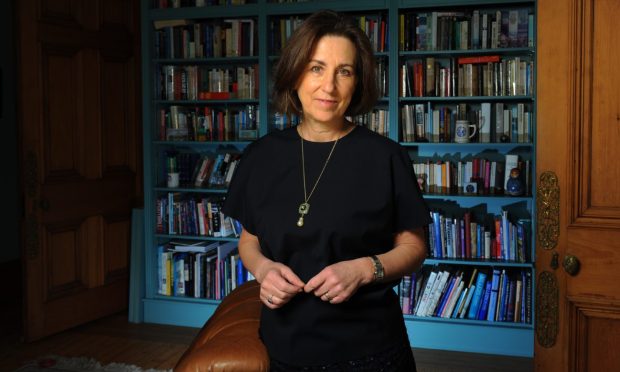

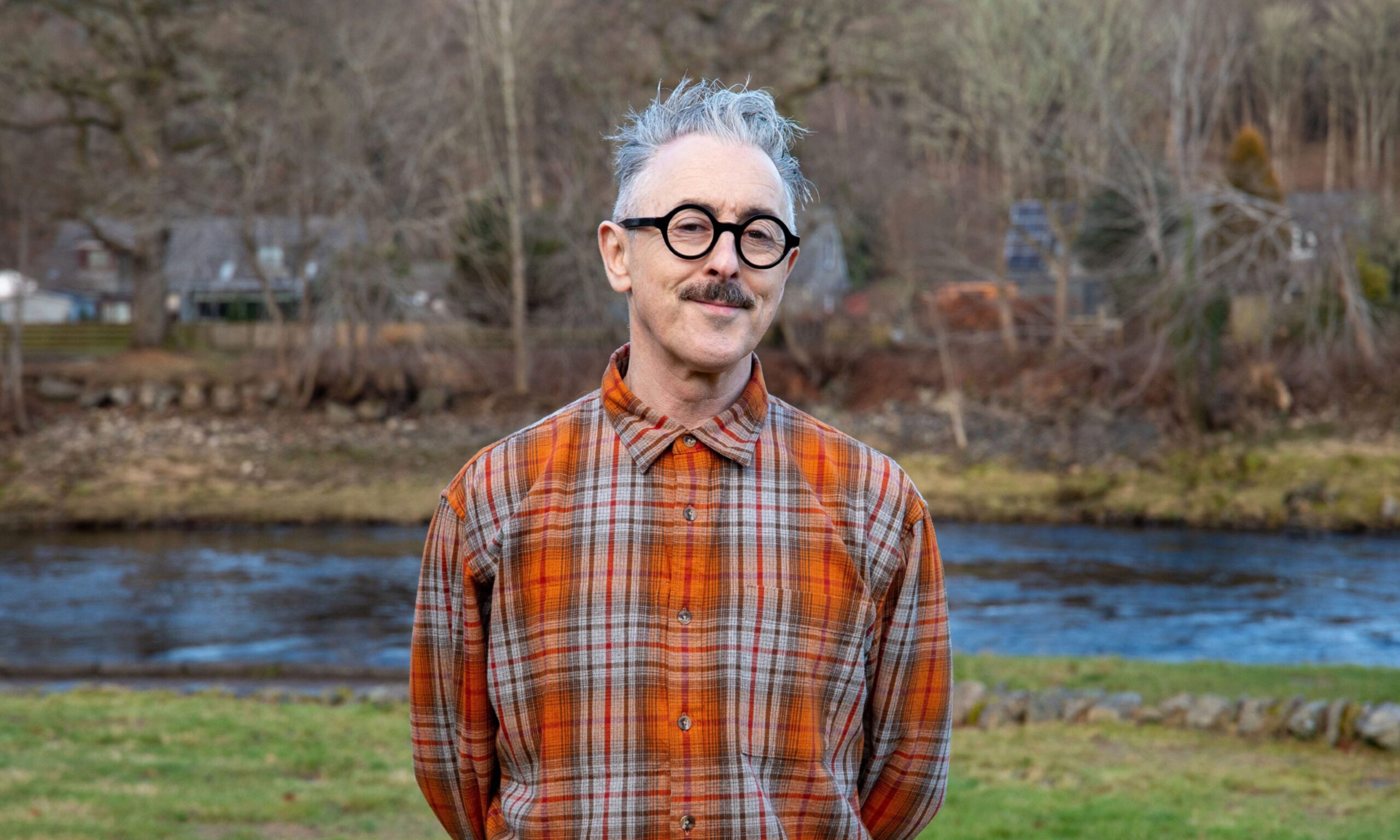
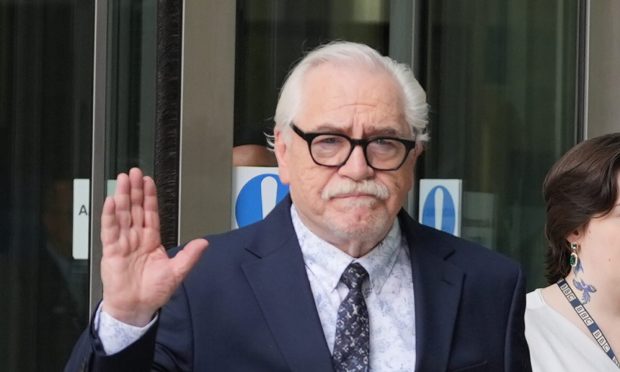
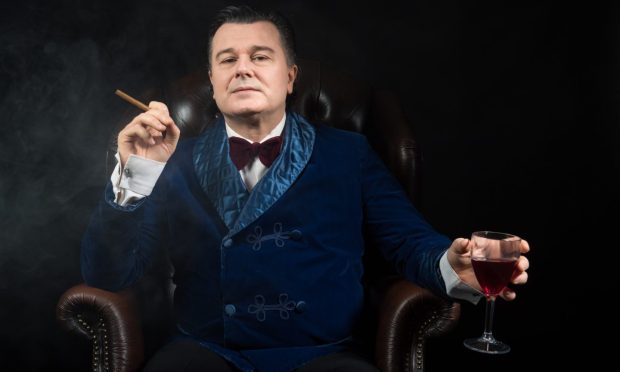
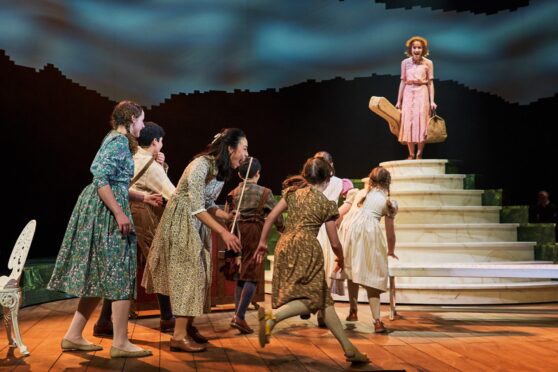

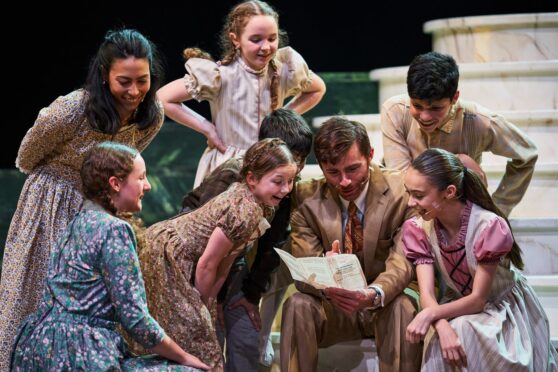
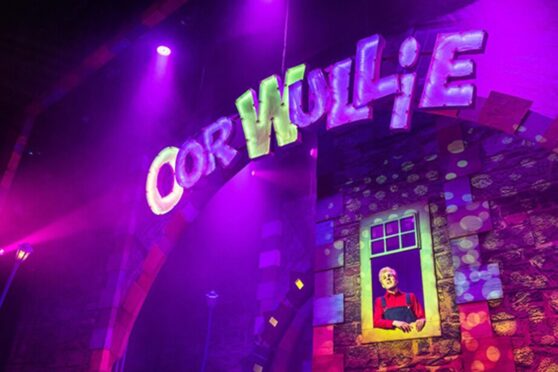

Conversation